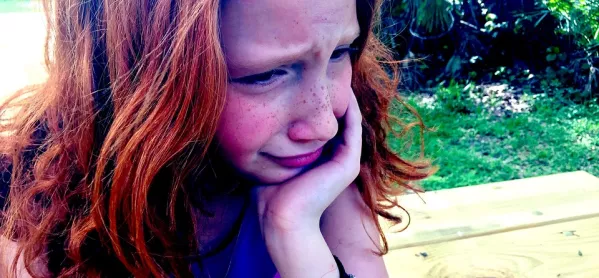- Home
- ‘It was almost child cruelty to put pupils through key stage 2 Sats’
‘It was almost child cruelty to put pupils through key stage 2 Sats’

Up and down the country, those key stage 2 results have now dropped onto our desks. What a trying year this has been for all those involved in the process, and especially for the 550,000 pupils who have been the guinea pigs. We all know that both children and teachers are put under unbelievable stress in what is ultimately the production of data, worth little more than the paper it is written on.
So, have we learnt anything from the process this year? Well, like many schools, we certainly have some interesting experiences to share.
Prior to the Sats papers even arriving in our schools, the lack of relevant information was a disgrace. What seemed to happen was that information appeared one week that actually conflicted with information we had already received. Intelligent individuals were left to grapple with a terminology that it appeared different people within the Department for Education couldn’t agree on. We no longer had levels, but we also had phrases to work with that seemed to change weekly.
We received practice papers that were actually of little or no use. They seemed to generate even more stress, creating in staff a desire to work out what “level” they were pitching at. I can’t remember a time that so many meetings were held with little or no resolution...
‘Child cruelty’
The key stage 1 issue of publishing data then led to us almost being treated like a police state: don’t do this; lock this away here; do this. I can’t remember a time before when I’d received so many aggressive emails from the DfE telling me what I could or couldn’t do. Like many heads, I became paranoid. And this was before a paper had even been opened.
The test week has been reported in detail. Suffice to say that children needed a degree to comprehend the reading paper. The maths papers? Well, I don’t know where to start. What I do know is that it was almost child cruelty to put individuals through this after seven years at school. Putting a positive slant on it, children and staff survived and were still smiling at the end of the week.
However, it still continued. Lucky us. We were then selected to trial new science Sats. Physics, chemistry and biology papers were administered to five appreciative children. The children were then asked to keep the content of the papers secret, and so not share the questions with teachers. Hard to believe, I know, and totally alien to the ethos of the school. One also questions the safeguarding element of asking 11-year-olds to keep secrets.
‘A shambles’
We maintained our lucky streak by being selected for writing moderation. After several “misunderstandings” between the school and the local authority, we eventually received our list of children to be moderated. As you would expect under the present regime, the expected standard focused on grammar. Where, you ask, was the child’s creativity or love of writing? As usual, this was ignored.
The saga continues with the submission of data. Here, the terminology seemed to change before our very eyes. It is not often that my staff are livid, but this time without doubt they were. We had to submit the writing data five weeks early, and could not edit or change it, unless we informed the moderator. What a shambles. Is this the way to treat professionals who know their children inside out?
The terminology was also different for each subject. I know: you couldn’t make this up. “Has not met” for some, “working towards” for others. Oh, and don’t forget the P levels for our special-needs children. Plus the supporting documents for explaining all this were so badly written that it was hard to believe that the authors had achieved their expected standard in English.
‘Make it up as you go along’
And so now we have the results. After all this, we still have a pass-or-fail system. Score 99 and, sorry, you’re not at the required standard. Score 100, and well done. We now have a system that uses new words, but we still have confused and stressed and alienated staff and children.
All in all, we have had thousands of children subjected to an amateur, make-it-up-as-we-go-along system. And for what, you all ask. Well, to find out exactly what all our excellent teachers already knew about their children.
There is no doubt that this year’s Sats have been a debacle. Heads should roll, but the people who run this are faceless civil servants who don’t listen and are not really interested in what we think. In fact, they are probably pleased with themselves. There is no pleasure that can come out of this, because inevitably good teachers and schools will be measured detrimentally by the incompetence of this system. And that is a national disgrace.
PS: As a school, we did really well.
Colin Harris is headteacher of Warren Park Primary School in Havant, Hampshire
Want to keep up with the latest education news and opinion? Follow TES on Twitter and like TES on Facebook
Keep reading for just £1 per month
You've reached your limit of free articles this month. Subscribe for £1 per month for three months and get:
- Unlimited access to all Tes magazine content
- Exclusive subscriber-only stories
- Award-winning email newsletters



